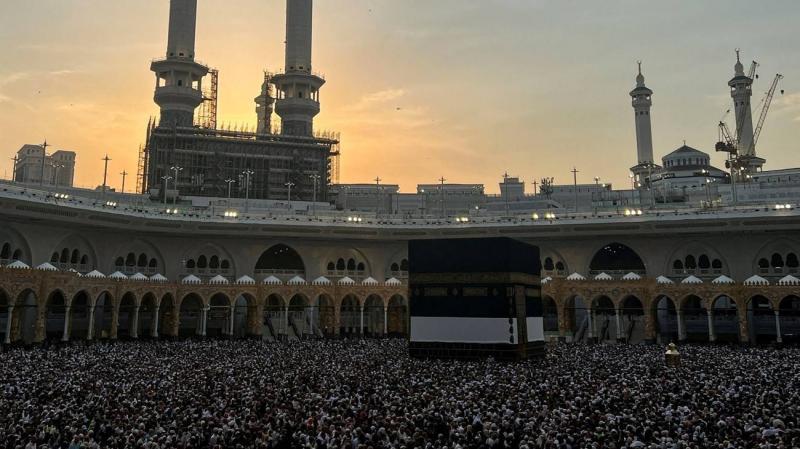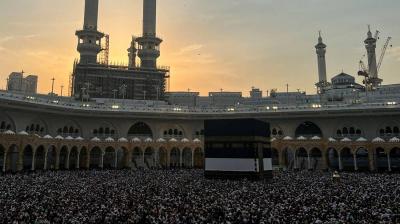Saudi Health Minister Fahd Al-Jalajel confirmed today, Sunday, the success of health management efforts for the Hajj season of 1445 AH, due to the cooperation of the health system and the Hajj security forces. In a televised interview with the "News" channel, he stated, "No epidemics or widespread diseases were recorded among the pilgrims."
Al-Jalajel highlighted that the health system dealt with a significant number of cases affected by heat exhaustion this year, some of whom are still receiving care. He revealed that the death toll reached 1,301, may God have mercy on all of them, with 83% being individuals without Hajj permits, who traveled long distances under the sun without shelter or rest, including a number of elderly people and those with chronic illnesses. He prayed for mercy and forgiveness for the deceased and expressed his condolences and sympathy to their families.
He noted that the health system provided over 465,000 specialized medical services, with 141,000 of those services rendered to those without Hajj permits, affirming that this care reflects "the directives of the wise leadership to prioritize human health above all considerations."
The health minister emphasized that the relevant authorities made significant efforts to raise awareness about the dangers of heat exhaustion and stressed the need to adhere to and implement preventive measures.
He explained that the free health services offered by Saudi Arabia to the pilgrims began even before their arrival in the Kingdom, with awareness programs at air, sea, and land border entry points. Approximately 1.3 million preventive services were provided, including early detection, vaccinations, and medical care upon arrival.
Health services available to pilgrims included open-heart surgeries, cardiac catheterization, dialysis, and over 30,000 emergency services, including 95 air ambulance transfers to provide advanced health services in medical cities across the Kingdom.
The health system also offered over 6,500 equipped beds in the holy sites and provided technologies that enable rapid and efficient rescue of the injured.




